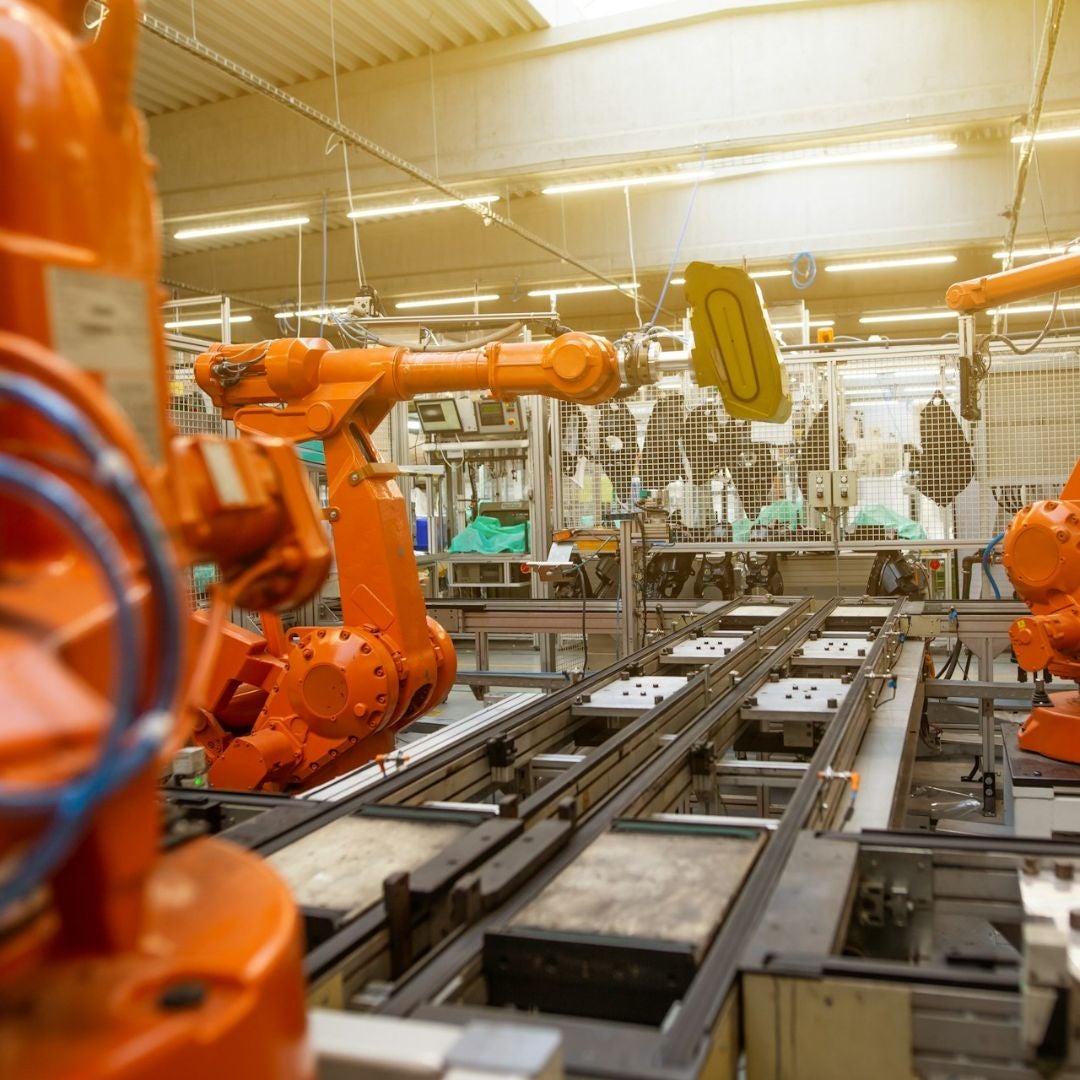
If you’re like most people, these changes have probably had you wondering ‘Will a robot take my job?’ more than you’d like to admit.
Although robots can now perform human jobs in the workplace, the need for skills in leadership and management continues to be indispensable. We’ll explore how to keep ahead of the skills shortage with an MBA and the predicted role machines will play in the future of work.
What jobs is technology taking over?
In their report, the WEF lists the following as the most likely roles to become redundant as machines start to share labour-intensive responsibilities with humans:
- Cashiers and ticket clerks
- Administrative assistants and executive secretaries
- Building caretakers, housekeepers and cleaners
- Material-recording and stock-keeping clerks
- Printing and related trades workers
- Accounting, bookkeeping and payroll clerks
- Accountants and auditors
- Transportation attendants and conductors
- Security guards
- Bank tellers and related clerks
- Data entry clerks
- Client information and customer service workers
- Graphic designers
- Business services and administration managers
- Claims adjusters, examiners and investigators
Is AI replacing human jobs?
Once upon a time, the thought of robots in the workplace seemed like science fiction. Today, it’s commonplace.
COVID-19 ushered in the future of work sooner than expected and our reliance on digitisation and automation snowballed.
We now have machines performing tasks at self-service checkouts and security surveillance, with more change on the horizon. But can AI replace human jobs altogether?
The World Economic Forum (WEF) conducted a global survey of more than 1,000 top leaders around the world, representing over 14 million workers across 22 industry clusters, to learn about the job outlook from 2025 to 2030. The report focuses on the skills that will increase and decrease in demand.
According to the report, global macro trends, which include technological advancements like AI, are projected to displace 92 million jobs.
Careers of the future
Although confronting to think about at first, these changes are the next logical step when considering the current work landscape. Teams are more remote than ever, our workspaces look different and global collaboration is now more accessible. Moreover, we have begun to rely on automation more out of necessity than by choice.
Rather than shying away from these changes, the best thing to do is adapt and learn to excel at the jobs robots can’t do. There are plenty of worthwhile skills you can acquire that will help secure you a place in the future of work, especially for aspiring leaders.
Job skills needed for the future
As efficient as machines are, we will always need humans at work. According to the WEF, the following skills are in high demand and you'll need to develop them if you want to future-proof your career:
- Technological literacy
- Creative thinking
- Resilience, flexibility and agility
- Curiosity and lifelong learning
- Talent management
- Analytical thinking
- Leadership and social influence
- Environmental stewardship
Jobs that won't be automated
Emerging technologies and the acceleration of automation means the introduction of new roles as well. According to The Future of Jobs report, 170 million new positions are projected to be created in response to global macro trends. Some jobs are rapidly growing, especially those involved in tech such as AI and machine learning specialists, fintech engineers and big data specialists.
The report also highlighted the job titles that are increasing in demand, including general and operations managers as well as project managers.
With an MBA, you'll be primed for roles like this by acquiring the skills that will be in high demand.
How an MBA can future-proof your career
Predicting the outlook for humans and machines at work will naturally bring on some form of anxiety. However, it gives us good insight into the talents we need to focus on acquiring now in order to secure the best jobs in the future.
As long as you're prepared to work towards these in-demand skills, there's no need to wonder ‘Will a robot take my job?’
According to the Future of Jobs report, 39 per cent of an employee's current skill set will become outdated or be transformed over the 2025-2030 timeframe. Employees need to be proactively upskilling if they wish to stay ahead of the curve and future-proof their career paths.
A modern MBA program teaches the critical skills that the WEF highlights in its report, including creative thinking, leadership and social influence and analytical thinking. These are essential skills for jobs that won't be automated, especially in leadership and management roles.
Upskill as a leader and stay relevant
With humans, robots and algorithms sharing the labour in the modern workplace, there’s never been a better time to prepare. Enrolling in an MBA program gives you the tools you need to fill the skills gap and equip yourself for the careers of the future.
If you want to learn more about what this postgraduate program can offer in career advancement and future-proofing your role, explore available MBA courses in Australia. You can find out what units you can study and job prospects you can explore as a graduate.



















